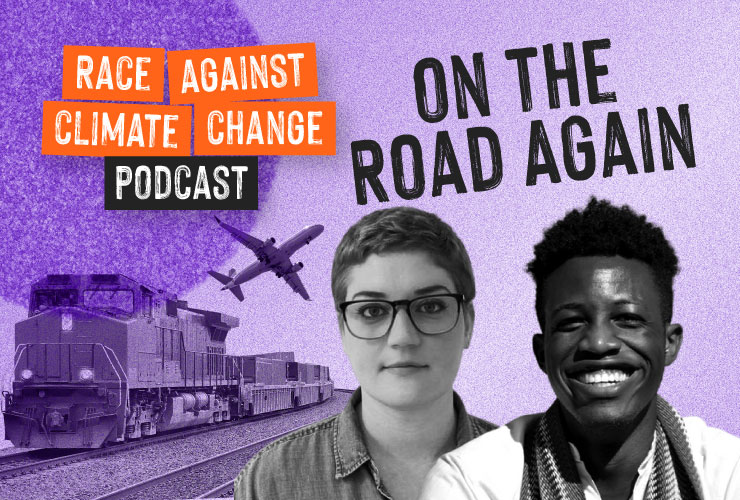Trudeau isn’t causing inflation — but climate change might be

Pierre Poilievre may be the member of Parliament for a riding in eastern Ontario, but he’s never strayed far from his Alberta roots. After all, the Calgary-born MP loves nothing more than to blame Justin Trudeau for things that aren’t his fault, and that’s especially true with his recent crusade against inflation.
Never mind that experts from across the political spectrum, including prominent conservative pundits like John Ivison and just about every working economist in Canada, are saying the current bout of inflation Canadians are dealing with has almost nothing to do with the federal government’s policies. And let’s just forget that similar levels of inflation are happening in countries like Germany, the United Kingdom and the United States, where Justin Trudeau doesn’t have much influence or sway.
In Poilievre’s universe, Trudeau is Schrodinger’s prime minister: simultaneously too weak to achieve anything of substance and so powerful that he determines global markets and inflation trends. “The Liberal government is causing inflation with excessive deficits and high taxes,” he told the National Post. “Our goal is to push them to stop doing the things that cause inflation.”
Those things, not surprisingly, are the same ones Poilievre objected to back in March 2020 when the pandemic was just getting started: spending money to support Canadian households and businesses. “You might want to address it through big, fat government programs,” he said in response to a question about his belief tax cuts were the right way to respond to COVID-19. “We’re conservatives, so we don’t believe in that.”
But if Trudeau isn’t responsible for inflation, what is? In the near term, it’s being driven by COVID-19 and its impact on everything from oil and gas prices to supply chains (or, as Ivison called them, “supply kinks”). Indeed, there’s a certain irony in conservatives crying bloody murder about inflation when as much as one-third of it is due to soaring oil and natural gas prices, which disproportionately benefit their western Canadian supporters and will help turn Alberta and Saskatchewan’s finances from raging dumpster fires into mere smouldering trash cans.
In the longer term, though, the real driver of inflation is the one conservatives desperately want to avoid talking about: climate change.
Take the recent tweet from O’Toole, in which he suggested the rising cost of breakfast foods like bacon, syrup and coffee was somehow attributable to Trudeau’s policies rather than things like supply chain disruptions and extreme weather events. But as the Agri-Food Analytics Lab at Dalhousie noted in a Sept. 29 survey, “Many staples including meat, dairy, and groceries have increased in recent months due to macroeconomic shocks, caused by both unfavourable weather patterns in the northern hemisphere and logistical challenges due to the global pandemic.”
Syrup prices aren’t surging because of Trudeau’s nefarious policies but instead because of a mismatch between demand and supply driven by weather (and climate). As NPR noted in a piece on the global syrup shortage, “this year's short and warm spring resulted in an uncharacteristically low yield for producers.” As for coffee? That’s even harder to pin on Trudeau, given unseasonable frosts in July damaged production in many key South American growing regions.
And while the supply chain disruptions caused by COVID-19 will get better, the potential impact of climate change will only get worse. That’s the working theory laid out by Umair Haque, a British writer and the director of the London-based Havas Media Lab. “Prices are going to rise, probably exponentially, over the course of the next few decades,” he writes. “The reason for that’s simple: everything, more or less, has been artificially cheap.” That’s because costs that we’ve long externalized, from carbon emissions to plastic pollution, are now going to have to be borne by companies and consumers over the next few decades.
Those supply chains, meanwhile? They might get re-kinked a lot faster than we’d like to think. “Making, producing, distributing, buying, selling the basics of civilization the dirty way that we do causes climate change — and climate change is trying to teach us a lesson,” Haque writes. “Climate change is made of fire and flood and typhoon and plague. See the feedback effect? Good luck distributing that batch of steel when there’s a megaflood or megafire in the way.” The catastrophic floods in British Columbia, and the effect they’ll have on everything from shipping to agriculture, will offer Canadians an unwelcome preview of this.
Pierre Poilievre and the Conservative Party of Canada will ignore this looming threat, just as they’ve studiously downplayed or dismissed the threat of climate change for as long as they’ve been a political party. But at some point, the reality of climate-driven inflation will become apparent to even the most stubborn observer. The only real questions are whether it will be too late to do anything about it by then, and how much it will cost the working Canadians who conservatives like Poilievre claim to be fighting for.






Comments
Pierre Poilievre and the Conservative Party of Canada don't have a clue about inflation. For the last couple of decades the Bank of Canada's attempts to create 2% annual inflation have been unsuccessful. Now the combo of COVID19 and Climate change has caught up with us. Want to stop or reduce inflation, reduce your spending. But Pollievre like Kenney will feel gaslighting us so they seem to be true. And with social media falsehoods, and attention spans in the milli seconds most citizens don't have clue. Heck Kenney baffled Albertans with so much BS about equalization, a million actually believe our government in Alberta sends Quebec a cheque. pollievre just trying it on with inflation.